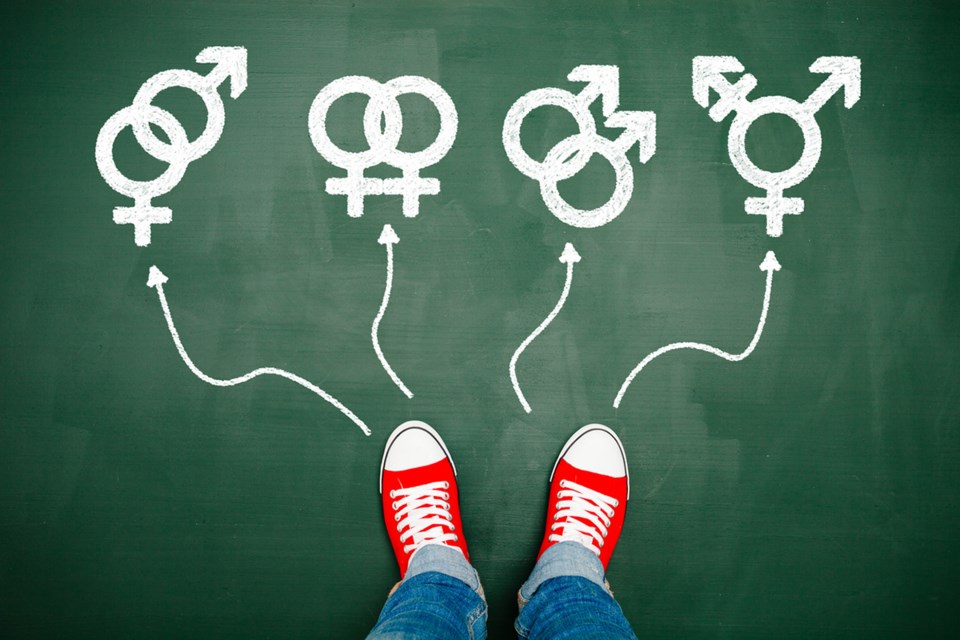As ┬ķČ╣┤½├Įė│╗Łprepares to commemorate 2018 as Year of the Queer, opinions are mixed about using the reclaimed slur to encompass a rainbow of sexualities.
And while it may be easier than calling this the Year of the LGBTQIA2S+, the debate also suggests that acronyms have not outlived their usefulness.
ŌĆ£The word queer, it was almost a disgusting word,ŌĆØ says ┬ķČ╣┤½├Įė│╗Łcity councillor Tim Stevenson, 73, who came out nearly six decades ago.
ŌĆ£I fought against it ŌĆö ŌĆśThere's nothing queer about us!ŌĆÖ But over time, as generations have come into the gay rights movement, a lot of people have reclaimed this and use it in a positive way, so I too have made a change in how I view the word.ŌĆØ
In March, Stevenson was approached by organizers of anniverary celebrations for 15 local arts, cultural, health and community organizations that do important work on behalf of VancouverŌĆÖs LGBTQ2+ community.
┬ķČ╣┤½├Įė│╗ŁPride SocietyŌĆÖs Andrea Arnot, frank theatre companyŌĆÖs Fay Nass, Out on ScreenŌĆÖs Stephanie Goodwin and Pride in ArtŌĆÖs SD Holman came up with the name ŌĆ£Year of the Queer.ŌĆØ
However, former councillor Ellen Woodsworth, who with Stevenson spearheaded the VancouverŌĆÖs first Stonewall celebration ŌĆö named after the riots that took place in New York City in 1979 considered by many as the first demonstration of pride ŌĆö says thereŌĆÖs a reason that the acronym LGBTQIA2S+ continues to expand. She says that while queer is a great ŌĆ£catch-all,ŌĆØ the term shouldnŌĆÖt be used in lieu of the different groupings within the community..
ŌĆ£I fought against the word gay,ŌĆØ says Woodsworth. ŌĆ£There are different issues for gay men than there are for lesbian women ŌĆö childcare, pay equity, healthcare ŌĆö and the same should be recognized with the transgender and Two-Spirited communities.ŌĆØ
The BC TeachersŌĆÖ Federation recommends the resource The Gender Spectrum: What educators need to know when teaching students grades K-12 sexual education. In the bookŌĆÖs glossary, queer is defined as:
ŌĆ£A term becoming more widely used among LGBT communities because of its inclusiveness. ŌĆśQueerŌĆÖ can be used to refer to the range of non-heterosexual and non-cisgendered people and provides a convenient shorthand for ŌĆśLGBT.ŌĆÖ It is important to note that this is a reclaimed term that was once and is still used as a hate term, and thus some people feel uncomfortable with it.ŌĆØ
For Osmel B. Guerra Maynes, ŌĆ£queerŌĆØ is a term that can be used by anyone, although differing intentions still exist.
ŌĆ£You put power to words. I see it as accepting a word that made us feel like lesser beings saying ŌĆśThis is not a word you can use anymore to say that weŌĆÖre worthless and mean nothing. WeŌĆÖre taking it back and sharing it,'ŌĆØ says Maynes, the executive director of QUMUNITY, B.C.ŌĆÖs resource centre for queer, trans and Two-Spirited people.
He feels the same about racial terms.
ŌĆ£ItŌĆÖs the context behind it,ŌĆØ says Maynes who as a black Latino man never uses the n-word. ŌĆ£For me thatŌĆÖs just a word you donŌĆÖt use.ŌĆØ
On Tumblr there was a discussion among users who called themselves officialqueer, violet-lesbian, and robotbisexual. Their differing opinions demonstrate how personal definitions of the term can vary widely within the community itŌĆÖs meant to address.
While the asexual panromantic argues the word tells people all they need to know "I'm not straight," the lesbian user says she's tired of people including her in a word she considers a slur. A bisexual user responded with the argument that ŌĆ£gayŌĆØ was also a term reclaimed after a dark history, and cautioned readers against dubbing someoneŌĆÖs identity as a slur.
ŌĆ£There are a lot of divisions within the LGBTQ+ world. Queer is the only word that not only demands equal acceptance for everyone, but leaves the door open for words and descriptors that havenŌĆÖt even been invented yet.ŌĆØ
The official declaration of ŌĆ£Year of the QueerŌĆØ is May 23. It begins with a panel discussion at City Hall, followed by a celebration on Helena Gutteridge Plaza. Pride, trans and Two-Spirited flags will be raised on Cambie and 12th from then until Aug. 19.
╠²



